Side by side, Michelle Lilienthal and Gretchen Speed lope around the 400-meter track at Fitzpatrick Stadium.
On this muggy weekday morning, sweat rolls off the faces of the two Portland women. They complete the lap in 90 seconds, which translates to a 6-minute mile pace, then rest before running another.
Lilienthal will do eight such laps, interspersed between 200-meter recovery jogs and two trips to a portable toilet on the far side of the stadium.
“I can’t keep up with her when she’s not pregnant,” Speed says with a laugh. “When I was pregnant with my kids, I (ran) a lot, but I never did (track) workouts. It’s impressive to see her keep it up and be really fit through her pregnancy.”
Lilienthal is a three-time Maine women’s champion of the TD Beach to Beacon 10K road race. She set the Maine course record of 33 minutes, 39 seconds in her first victory, in 2014, and won again in 2016 and 2018.
She will not win in 2019. On race day next month, she will be seventh months pregnant.
That hasn’t stopped her from running or training, but she does promise to dial back her usual intensity on race day – Saturday, Aug. 3.
“I’m trying to not push too hard,” Lilienthal, 37, said as she walked around the track after completing her weekly workout. “I’m so used to pushing myself until I could vomit that I’m trying to rein it in and not make myself feel that way.”
Lilienthal has been a serious runner since her teens, a seven-time Iowa high school state champion who went on to earn all-Big Ten distinction at the University of Wisconsin. She shifted to marathons while in graduate school in Philadelphia, got a sponsorship deal with Saucony that lasted nearly 10 years, and has competed in three U.S. Olympic marathon trials, with a fourth scheduled for late February in Atlanta.
While on the road racing circuit, she met another three-time Beach to Beacon champion, Sheri Piers of Falmouth. It was at the 2013 Beach to Beacon that Piers introduced Lilienthal to Marc Halverson, a former Falmouth High and University of Maine runner. They started dating and, with a nudge from a brutally cold Minnesota winter, Lilienthal moved to Maine in 2014.
They got married in the spring of 2018, and over the winter learned that Lilienthal was pregnant. Since then, she has run three races, the Robert Burns 10K in Westbrook in late January, the Falmouth 4-Miler in April and the Patriot 5K in Gray in May. Each time, she was the top female finisher.
She considered another 5K in June, but Halverson helped dissuade her of that notion. Halverson, 30, said he experienced some initial trepidation about Lilienthal continuing her running regimen.
“It just seemed so unorthodox to see her be so diligent in her routine with what is physically changing with her,” he said. “I mean, I don’t have the motivation to get out of bed at 4:30 in the morning right now, and I’m not pregnant. But running has always been a part of her life.”
The days of bed rest and Handle With Care surrounding uncomplicated pregnancies are a thing of the past. Dr. Erin Dawson-Chalat is not only Lilienthal’s OB-GYN, but also an avid runner and longtime host of elite athletes at Beach to Beacon.
Dawson-Chalat said women who exercise during pregnancy tend to have easier and faster labors and recover more quickly after delivery. Studies indicate they may be helping their baby’s neurological development as well.
Toss in the endorphins released during exercise, and it’s a win-win.
“Mom’s mood is good for baby’s mood,” Dawson-Chalat said. “Most women can exercise right up until the day of delivery.”
The American College of Obstetricians and Gynecologists recommends 20-30 minutes of exercise per day for pregnant women. Lilienthal, who owns a 2:34 personal best in the marathon, is not your average pregnant woman.
Her daily morning run covers 8-10 miles. Her most recent weekly track workout followed a 7-mile run with friends that began at 5:45 a.m.
Dawson-Chalat said pregnancy is a great time to maintain fitness, but not to establish personal records or push your body to extremes.
“So many people think that – and I’ve even heard other doctors said it – you can’t do intensity and heart rate matters,” Lilienthal said. “(Dawson-Chalat) said heart rate doesn’t matter. There’s not a lot of data around (a mother’s) heart rate affecting the baby. Staying hydrated and not overheating are the big things.”
The couple has yet to settle on a name for their son, who is due on Oct. 9. They have, of course, selected a baby jogger to be presented at an upcoming shower hosted by her parents in Iowa.
“I’m waddling a lot more when I’m running, and I definitely feel that,” Lilienthal said. “But I have just so enjoyed watching it unfold. It’s kind of like getting my body ready for a big marathon.”
Morning sickness has not been an issue. Lilienthal said any queasiness quickly subsides once she begins running. More of a challenge has been emptying a bladder compressed by the baby’s head.
“I know where all the port-a-potties in town are now,” she said. “I even have my emergency spots that aren’t port-a-potties.”
On the first Saturday in August, Lilienthal will pull on her racing singlet but run alongside Halverson, who will encourage as many water and bathroom stops as are necessary.
“For her, because she’s such a phenomenal athlete, it’s really hard for her to line up and not just go,” Dawson-Chalat said. “You don’t want to get overheated. You don’t want to trip and fall. But to see Michelle out there running and working hard is inspiring.”
Send questions/comments to the editors.


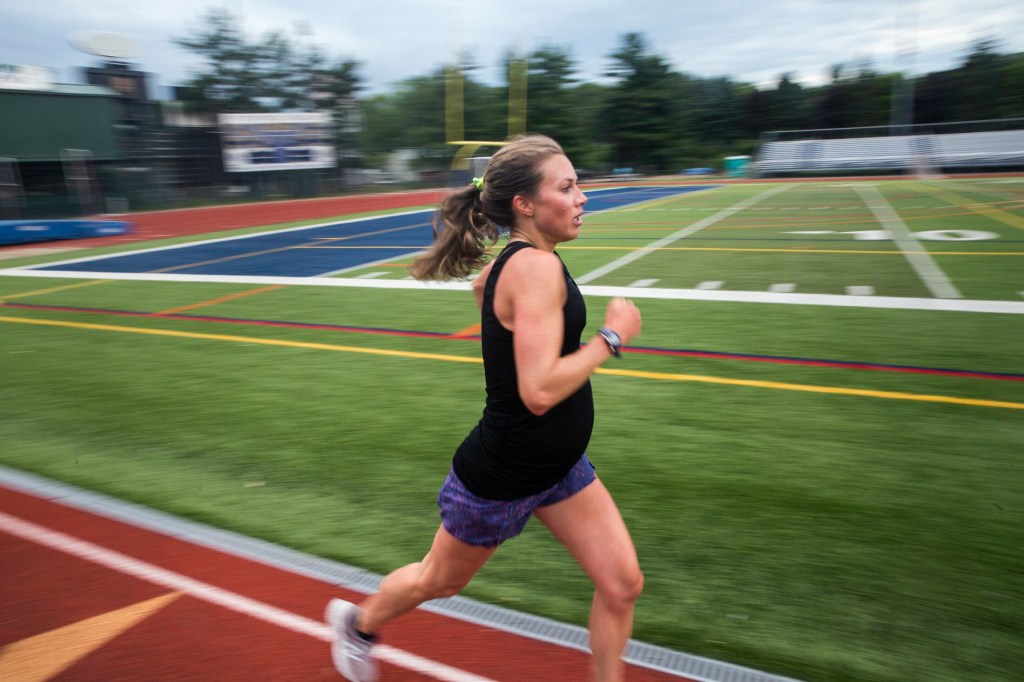
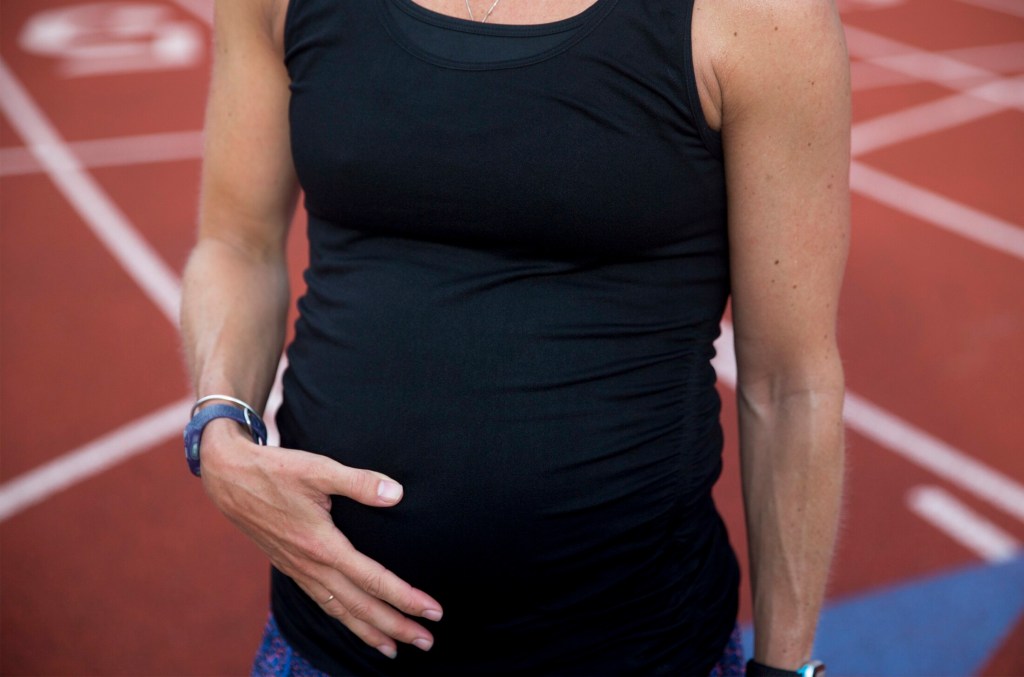
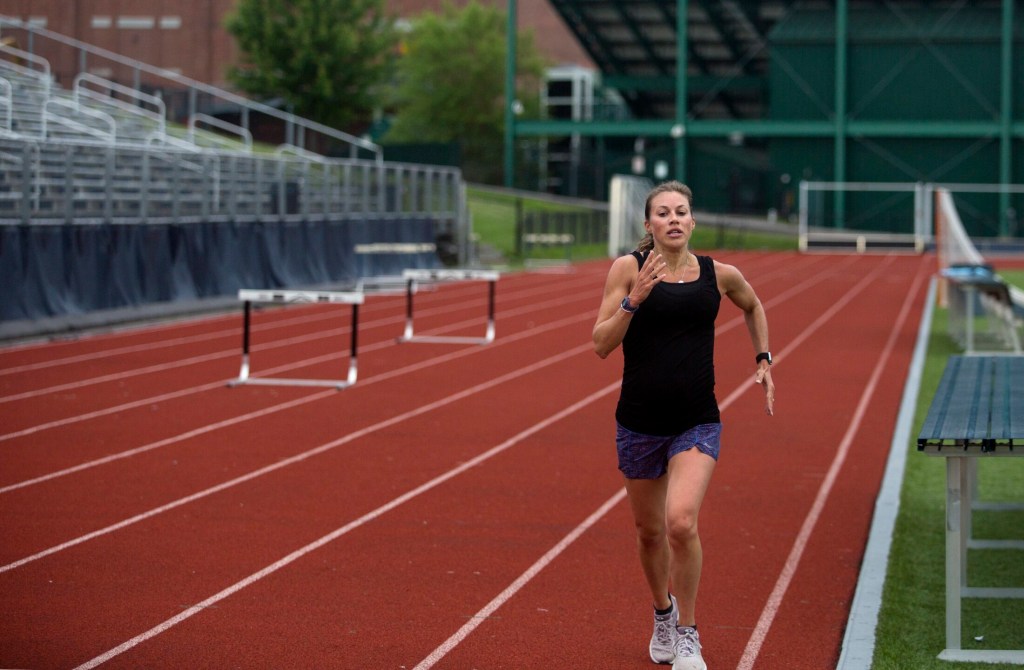
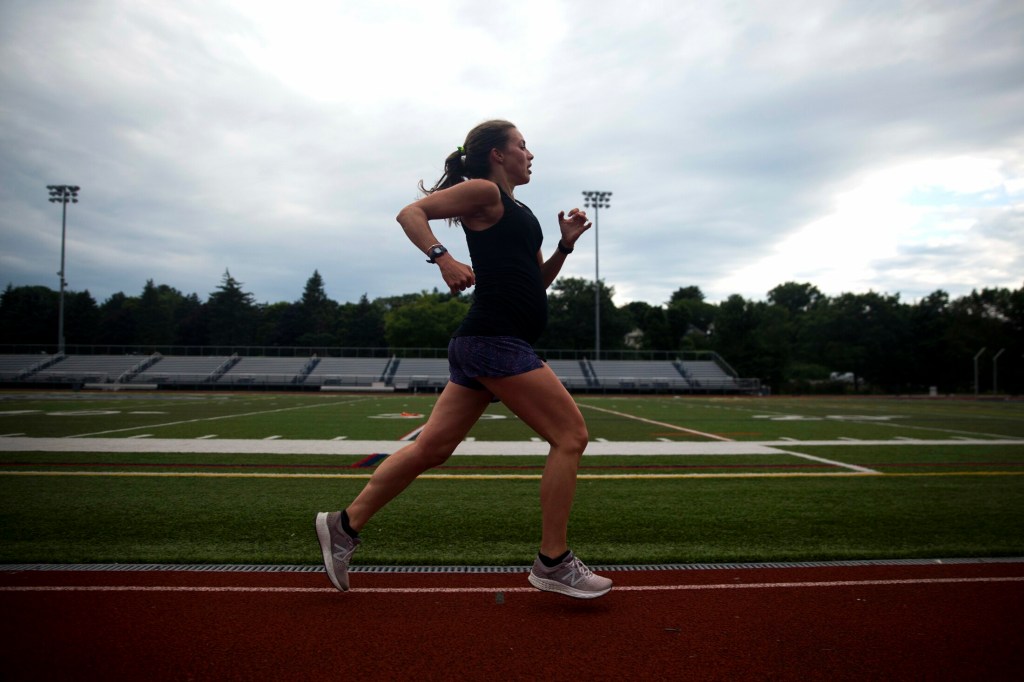
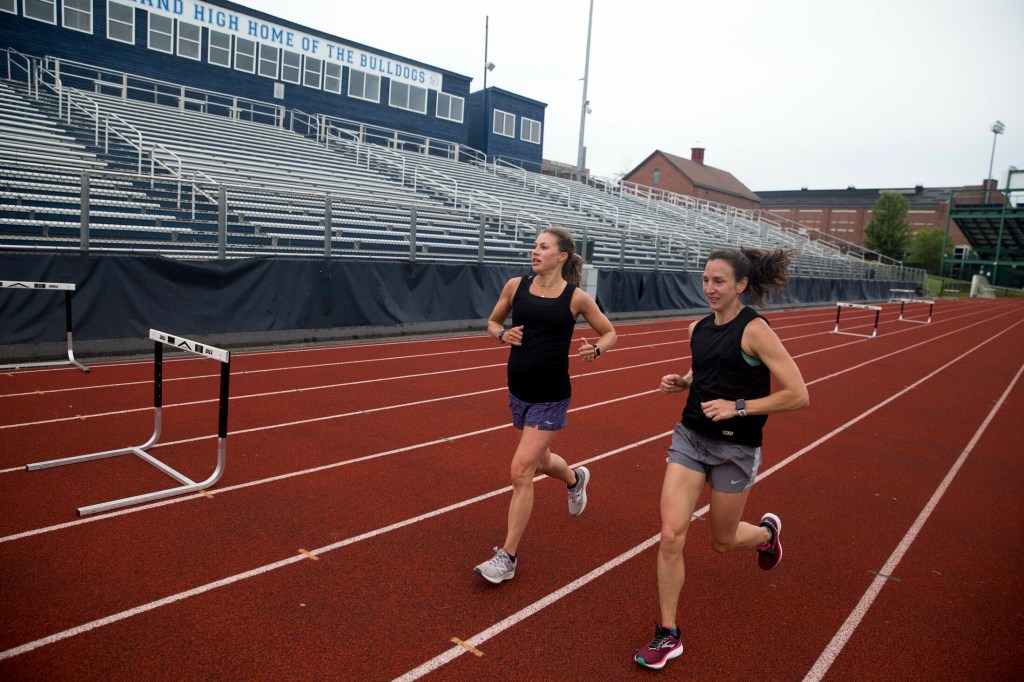
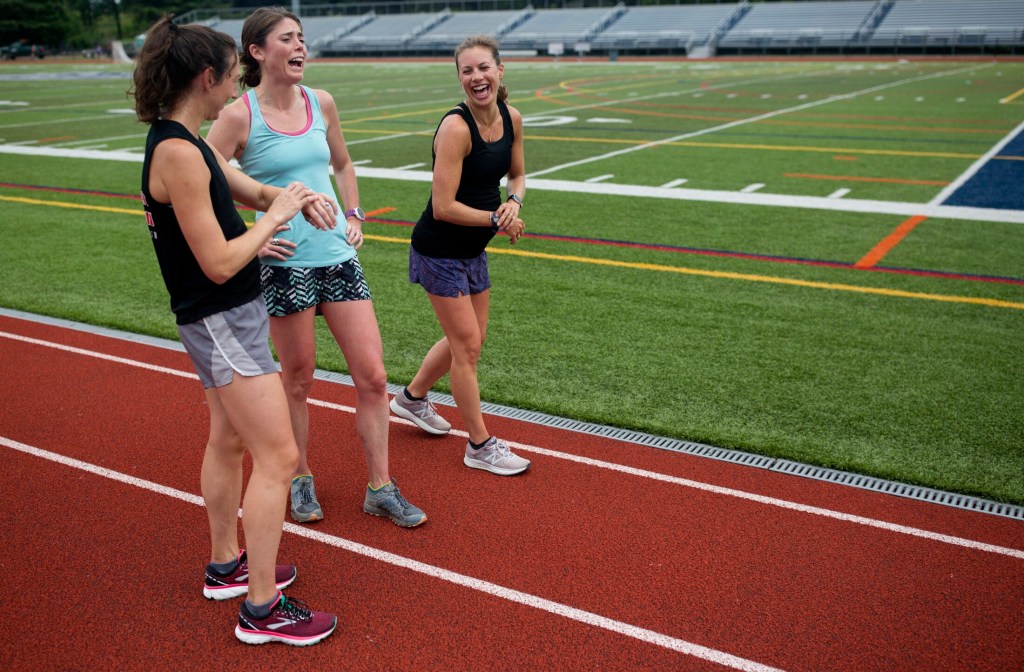

Success. Please wait for the page to reload. If the page does not reload within 5 seconds, please refresh the page.
Enter your email and password to access comments.
Hi, to comment on stories you must . This profile is in addition to your subscription and website login.
Already have a commenting profile? .
Invalid username/password.
Please check your email to confirm and complete your registration.
Only subscribers are eligible to post comments. Please subscribe or login first for digital access. Here’s why.
Use the form below to reset your password. When you've submitted your account email, we will send an email with a reset code.